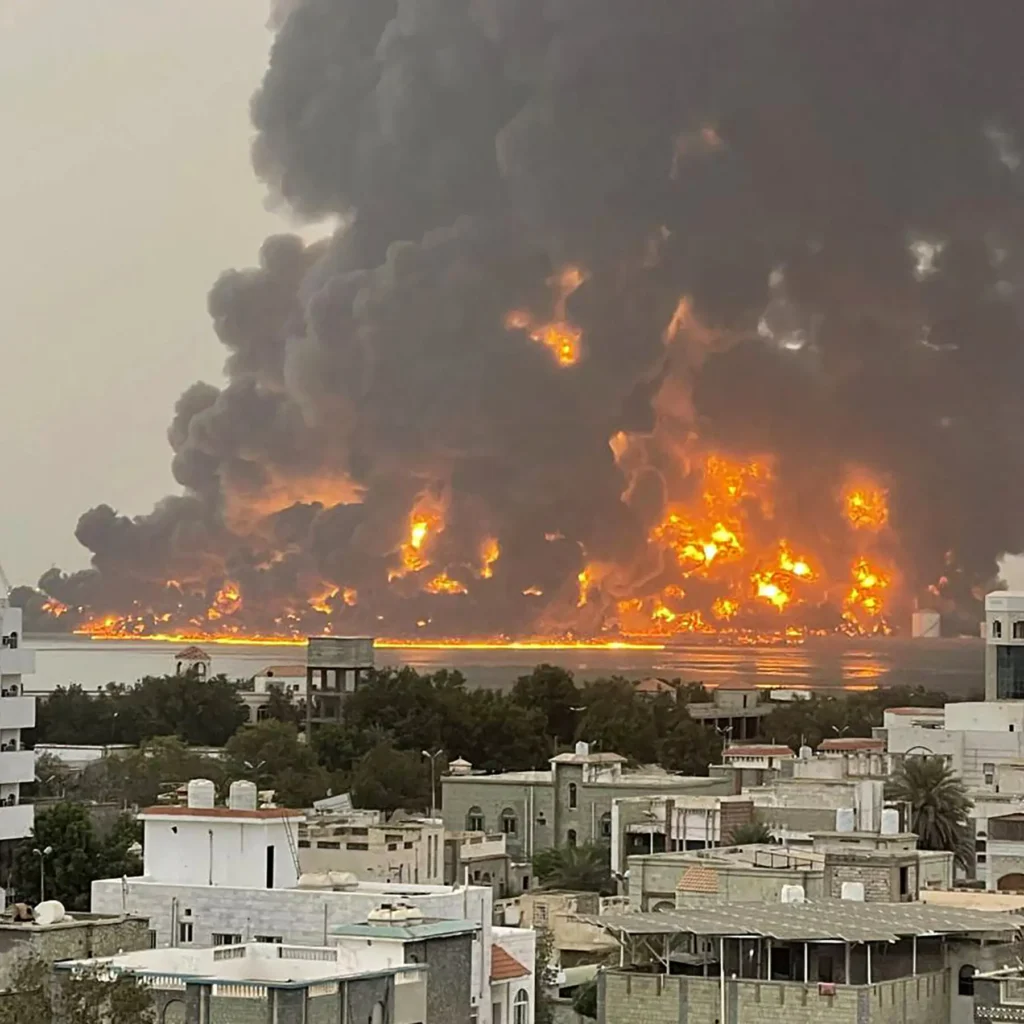World News
Israeli fighter jets rain bombs on Yemen in lethal drone strike

In response to a lethal drone strike on Tel Aviv, Israeli fighter jets bombed locations in Yemen associated with the Iran-supported Houthi militia on Saturday.
This marked the first time in several months that Israel has launched a publicized attack on the group amidst rising tensions.
The Israeli military’s airstrikes focused on gas and oil storage facilities as well as a power station in the Hodeidah area, a crucial port city on Yemen’s Red Sea coast, according to two regional officials.
While the port, controlled by the Houthis, is pivotal for oil exports, it also serves as a major gateway for essential goods and humanitarian aid to Yemen.
In an official statement, the Israeli military justified the strikes as a response to numerous recent Houthi attacks. Despite the escalation, Israeli officials have not implemented stricter civil defense measures, suggesting they do not anticipate a significant escalation.
Following the airstrikes, Houthi spokesman Nasruddin Amer asserted via social media that the group would persist in its assaults on Israel in solidarity with Gaza. “Yemen’s operations in support of Gaza will not stop,” Amer declared. “The response to this aggression is inevitable.”
The previous day, the Houthis had taken responsibility for a long-range drone attack on Tel Aviv, which resulted in one fatality and multiple injuries. This attack was part of a prolonged campaign by the Houthis, involving numerous missile and drone launches aimed at Israel, and attempts to disrupt shipping through the Red Sea to blockade Israel’s Eilat port.
Israel is already engaged in ongoing conflicts with Hamas in Gaza and Hezbollah in Lebanon, both backed by Iran. The airstrikes on Saturday seemed intended to avoid escalating into another major conflict.
In response to Houthi threats to Red Sea shipping, the US and the UK, alongside their allies, have launched numerous strikes on Houthi targets since November, sharing intelligence with Israel. However, four US officials confirmed that Israel conducted Saturday’s operation independently, without American military involvement.
The recent Houthi drone attack near an American diplomatic site in Tel Aviv was an uncommon breach of Israel’s advanced air defenses. Most previous Houthi missile and drone attacks on Israel have been intercepted by Israeli and US forces.
Until this incident, Israel had refrained from direct attacks on the Houthis in Yemen, which lies over 1,000 miles away. However, the drone strike on Tel Aviv prompted a decisive response. “The Houthis attacked us over 200 times. The first time they harmed an Israeli citizen, we struck them — and we will do this in any place where it may be required,” Israeli defense minister Yoav Gallant stated.
Dana Stroul, a former top Middle East policy official at the Pentagon, commented that by targeting Hodeidah, Israel signals its readiness to escalate and disrupt a key supply line for humanitarian and commercial goods into northern Yemen, a Houthi stronghold. This region is also a crucial route for smuggling weapons and missile components from Iran.
The Houthis have warned of severe retaliation against any Israeli attacks. Brig. Gen. Abed al-Thawr, a senior Houthi military official, stated that the group possesses undisclosed weapons capabilities. “All Israeli cities have now come under the reach of our targeting,” he warned.





















